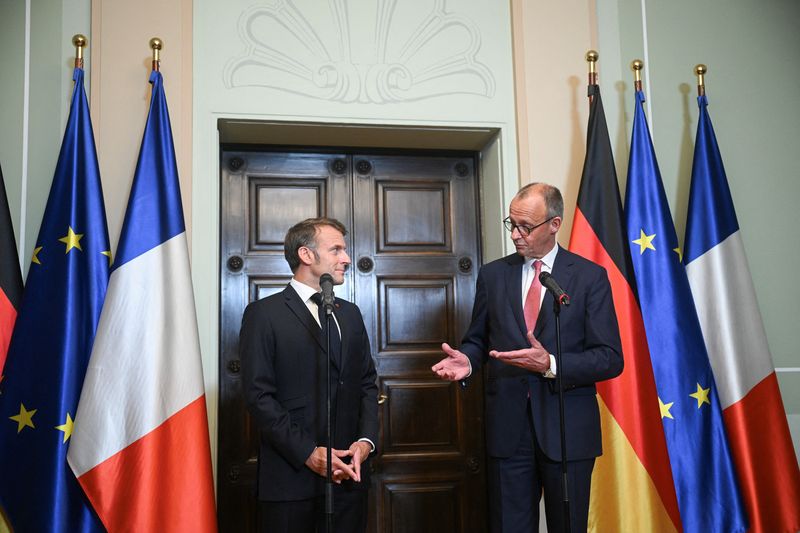Key Topics on the Agenda
German Chancellor Friedrich Merz is set to host French President Emmanuel Macron for a dinner meeting in Berlin, with several pressing issues expected to dominate the discussions. As Europe grapples with the potential impact of incoming U.S. tariffs and continues to support Ukraine, this high-level dialogue will be crucial in shaping the future of transatlantic and European relations.
The meeting, scheduled to take place at Villa Borsig on the outskirts of the German capital, brings together the leaders of Europe’s two largest economies. This gathering comes as trade negotiations are nearing a critical deadline—President Donald Trump’s August 1st deadline for decisions on tariffs. The timing underscores the urgency of the discussions and the importance of a unified European response.
Focus on Tariffs and Security in Ukraine
According to Thorsten Frei, Merz’s chief of staff, the discussion on how to respond to the threat of U.S. tariffs is a central topic. Additionally, the security situation in Ukraine is expected to be a major point of conversation. Frei emphasized that the breadth of the agenda highlights the significance of the relationship between Germany and France, noting that multiple other topics will also be addressed during the meeting.
Merz has been working to strengthen ties with France, advocating for a more cohesive approach on various issues such as European defense and diplomatic efforts with Iran. His administration has also criticized his predecessor, Olaf Scholz, for not prioritizing Germany’s relationship with its neighboring country. Despite these efforts, some challenges remain.
Disagreements and Divergent Stances
One notable point of contention involves a letter signed by France and 27 other Western countries urging Israel to immediately end the war. Notably, Germany did not sign the letter. Merz has expressed increasing criticism toward Israel, but his chief of staff clarified that the letter lacked clarity regarding the role of Hamas’s October 7, 2023 attacks in triggering the conflict.
This disagreement reflects the complexities of navigating international relations and the differing perspectives among European allies. It also highlights the delicate balance that must be maintained when addressing global conflicts.
Ongoing Discussions on Defense Projects
Another key topic expected to be discussed is the FCAS (Future Combat Air System) project, a Franco-German-Spanish initiative aimed at developing a next-generation fighter jet. However, the project’s future has come under scrutiny due to growing tensions with Airbus over control of the program. These disputes could have significant implications for the development and strategic direction of European defense capabilities.
As the leaders of Germany and France meet, their discussions will not only shape bilateral relations but also influence broader European policies and strategies. With so many critical issues on the table, the outcome of this meeting could have far-reaching consequences for both nations and the wider European community.







